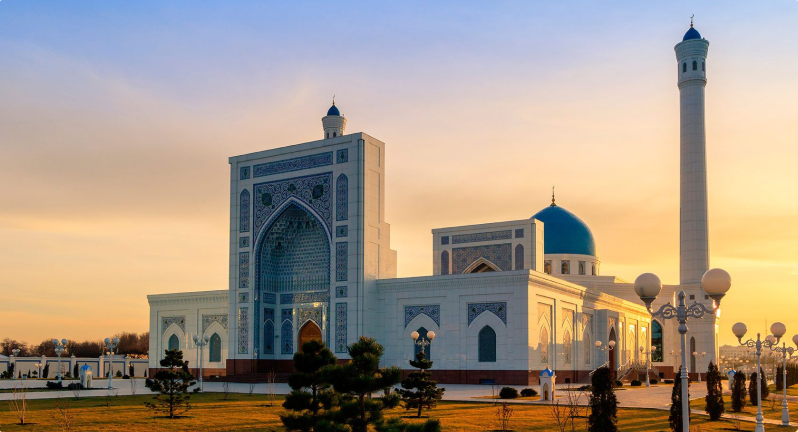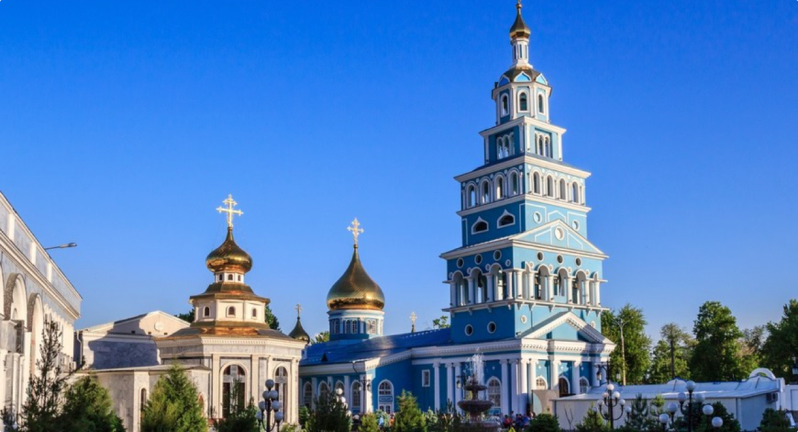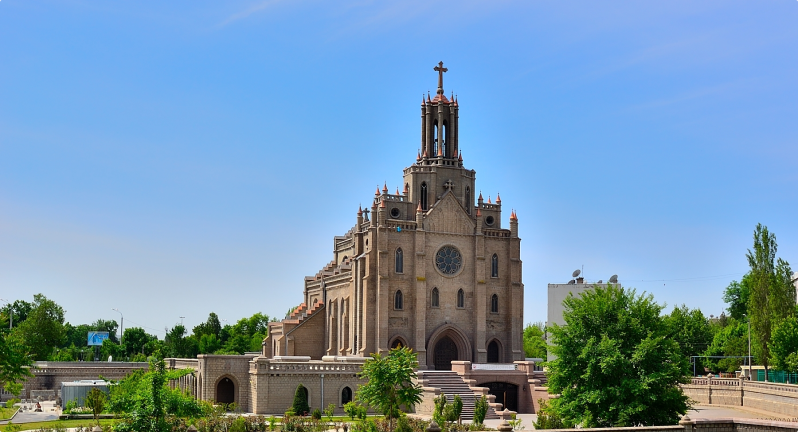As per official statistics, the religious composition of Uzbekistan includes approximately 93% Muslims, predominantly adherents of Sunni Islam following the Hanafi madhhab. The Shiite minority, constituting less than 1%, is concentrated in regions like Bukhara and Samarkand. Orthodox Christians make up about 4% of the population, with their numbers gradually declining due to the emigration of Russian, Ukrainian, Belarusian, and other communities. The remaining 3% encompass various religious groups such as Roman Catholics, Korean Christians, Baptists, Lutherans, Seventh-day Adventists, Evangelical Christians, Pentecostals, Jehovah’s Witnesses, Buddhists, Baha’is, Hare Krishnas, and atheists.
During the Soviet era, religious organizations, much like across the entire Union, faced persecution, leading to the destruction of numerous religious structures. However, since the late 1980s, the government's stance has become more accommodating towards different denominations while upholding the state's secular nature. This shift is evident in actions such as returning confiscated properties to religious organizations and supporting the construction or restoration of religious buildings.
As of June 1, 2010, Uzbekistan officially registered 2,225 religious organizations representing 16 different denominations. Islam predominates with 2,050 organizations, including mosques, religious educational institutions, and Islamic centers. Christianity comprises 175 organizations, with various denominations such as Korean Christians, Orthodox, Baptists, Pentecostals, Seventh-day Adventists, Catholics, Lutherans, New Apostolic Christians, and others.
Despite official statistics, it is noted that mosque attendance is notably high, especially among the youth. Christian denominations officially operating in Uzbekistan include the Russian Orthodox Church, Roman Catholic Church, Armenian Apostolic Church, Evangelical Lutheran Church, Union of Churches of Evangelical Christian Baptists, and the Center for Full Gospel Christian Churches.
Estimates suggest the presence of up to 10,000 Bukharan and Ashkenazi Jews in Uzbekistan, mainly residing in Tashkent, Bukhara, and Samarkand. Over the past two decades, a significant number of Jews, approximately 80,000, have emigrated to Israel and the United States, primarily motivated by economic factors.
The Constitution of the Republic of Uzbekistan upholds freedom of conscience, affirming the right of individuals to practice any religion or none at all. The imposition of religious beliefs is expressly deemed unacceptable.


